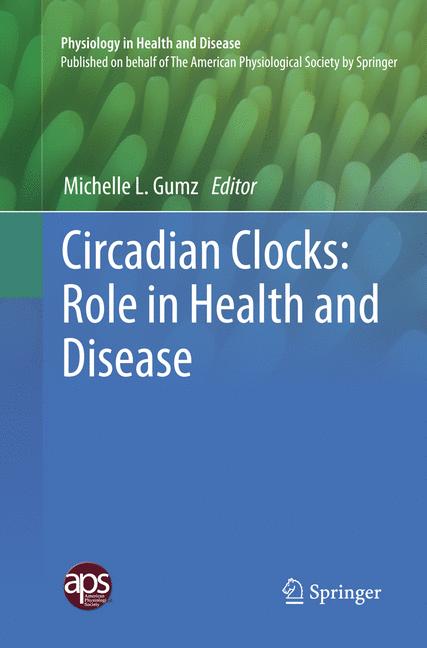This book sheds new light on the molecular mechanisms that generate circadian rhythms. It examines how biological rhythms influence physiological processes such as sleep, hormone synthesis and secretion, immunity, kidney function, the cardiovascular system, blood pressure, and the digestive system. Clinical implications are considered while exploring the impact of rhythms on neuropsychiatric disorders and chronotherapy’s potential for reducing cardiovascular risk. Offering a cross-section of expertise in both basic and translational (bench-to-bedside) research, this book serves as a guide for physicians and scientists who wish to learn more about the impact of circadian rhythms on physiological processes in health and disease.
Introduction and Mechanism of the Circadian Clock.- Circadian Rhythms in the Endocrine System.- Circadian Regulation of Sleep.- Circadian Rhythms in Neurological Disease.- Role of the Clock in Metabolism and Obesity.- Circadian Control of Renal Function.- Circadian Rhythms in the Vasculature.- The Cardiac Clock.- Regulation of Immunity by the Circadian Clock.- Rhythms in the Gastrointestinal System.- Chronotherapy in the Treatment of Cancer.- Chronotherapy in the Treatment of Hypertension.-The Circadian Clock as a Drug Target.-
“The audience is scientists or students interested in the role circadian clocks play in modulating the functions of physiological systems. … This is a high quality, comprehensive treatment of a very complex field of physiology. It is written in a logical, understandable manner that makes it easier to comprehend difficult topics. … Doctoral students in physiology will find their understanding of homeostasis and human survival enhanced by this book. It is an excellent contribution to the field of physiology.” (David R. Bell, Doody’s Book Reviews, August, 2016)
Michelle L. Gumz, Ph.D., Assistant Professor, University of Florida, Department of Medicine, Division of Nephrology, Hypertension and Renal Transplantation, Gainesville FL, USA
This book sheds new light on the molecular mechanisms that generate circadian rhythms. It examines how biological rhythms influence physiological processes such as sleep, hormone synthesis and secretion, immunity, kidney function, the cardiovascular system, blood pressure, and the digestive system. Clinical implications are considered while exploring the impact of rhythms on neuropsychiatric disorders and chronotherapy’s potential for reducing cardiovascular risk. Offering a cross-section of expertise in both basic and translational (bench-to-bedside) research, this book serves as a guide for physicians and scientists who wish to learn more about the impact of circadian rhythms on physiological processes in health and disease.




